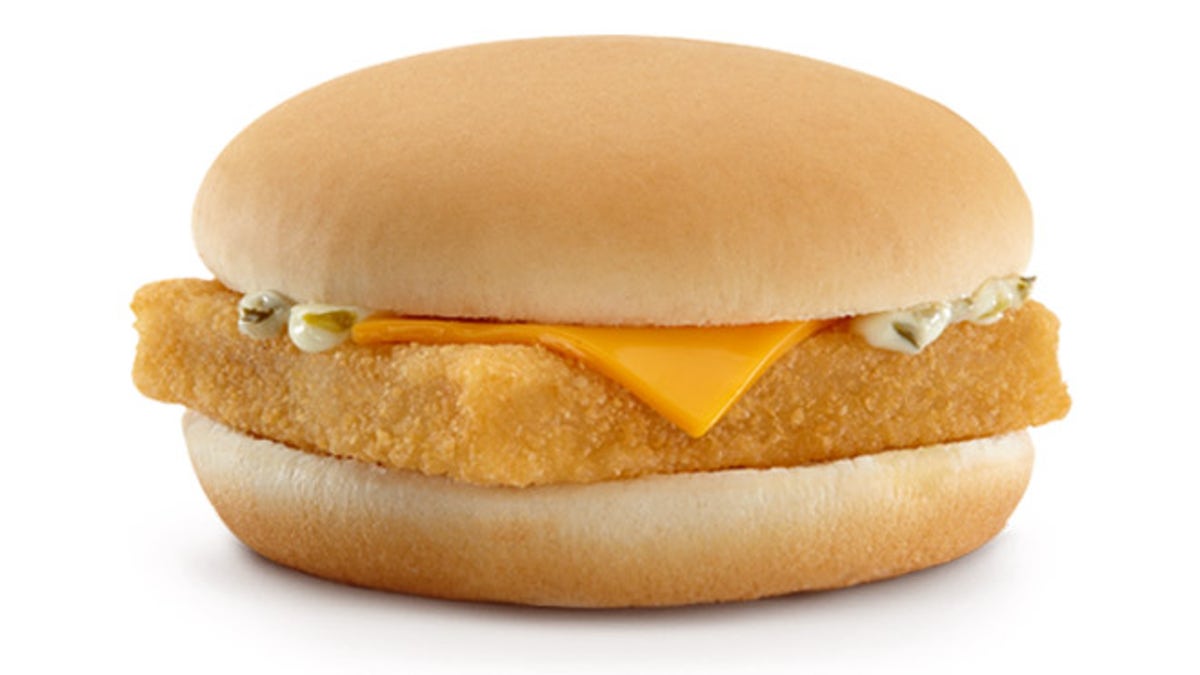
(McDonald's)
NEW YORK – McDonald's says it will be the first national restaurant chain to carry a label from a group that certifies sustainable fishing practices.
The blue "ecolabel" from the Marine Stewardship Council certifies that the Alaskan Pollack used in McDonald's Filet-O-Fish sandwiches come from suppliers with sustainable fishing practices.
Major retail chains including Wal-Mart and Whole Foods already use the council's label. The nonprofit group is paid a royalty fee from companies that use its label. For McDonald's, that means the fee would be based on sales of its fish offerings, such as the Filet-O-Fish and the Fish McBites that will be launched as a limited-time offer next month.
The Marine Stewardship Council, based in Seattle, isn't the only group that offers consumer labeling for seafood. Last year, for example, Whole Foods also stopped carrying wild-caught seafood that's "red-rated," which indicates it's either overfished or caught in a way that harms other species.
The move reflects the growing concerns among consumers about the sources of their seafood. Major supermarket chains, including BJ's Wholesale Club, have also moved recently to try to make their seafood selections more sustainable.
The Marine Stewardship Council has about 300 fisheries in its program, representing between 12 to 14 percent of the world's fisheries, said Kerry Coughlin, the group's regional director for the Americas. Fisheries can go through a confidential pre-assessment phase to get guidance on whether they're ready for certification. Coughlin said about 30 to 40 percent of fisheries aren't ready when they start the pre-assessment phase, but that more than 90 percent obtain certification after beginning the full, official assessment process.
McDonald's gets all its fish in the U.S. from a single Alaskan Pollack fishery, Coughlin said. The chain's restaurants in Europe already use the council's label.
A spokeswoman for McDonald's, Christina Tyler, said the all U.S. stores should have the labeling by early February. McDonald's will promote the certification on packaging for other products, including Happy Meals and drinks.
The company, based in Oak Brook, Ill., stopped using Eastern Baltic Cod in 2007 because of sustainability concerns. Since then, Tyler said the company has sourced Alaskan Pollock and New Zealand Hoki exclusively from fisheries with the Marine Stewardship Council's label. Now the chain uses only Alaskan Pollock for its fish items in the U.S.
